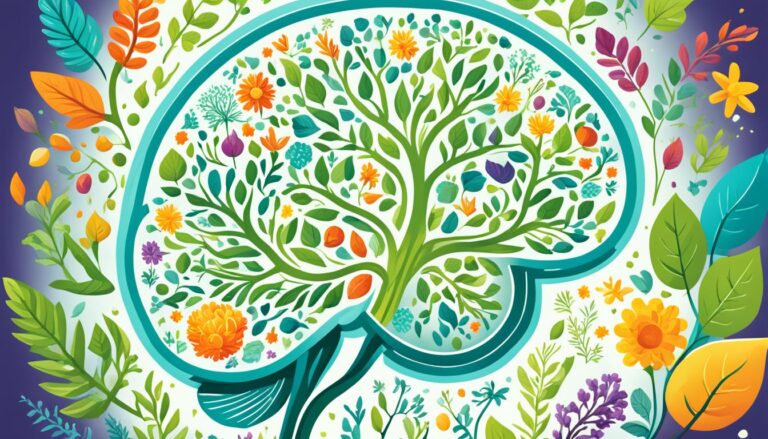Medically reviewed by Dr Chandril Chugh,
Renowned Neurologist and American Trained Specialist
Welcome to International Women’s Health Day 2024! Today, we honor the strength and resilience of women worldwide. It’s about raising awareness and empowering women to choose health.
Here are five key tips for a healthy life. They help your body and your mind. These steps are easy to follow but very effective.
Now, let’s look at how these tips can change your life. They work for women of all ages and situations. Whether young, a mom, working, or a grandmother, there’s something here for you.
Let’s start our journey to better health and happiness. Remember, focusing on your health helps everyone around you. Make today the start of a healthier future!
The Importance of Women’s Health
Women’s health is really important for everyone. We must learn about the health issues women face. This helps keep them healthy at all ages and from all walks of life.
Understanding the Specific Needs of Women’s Health
Women’s health includes many areas like physical and mental well-being. It focuses on issues such as reproductive health and hormonal changes. These often affect women differently than men.
Women go through a lot of changes in life, from puberty to aging. These changes need special care. Knowing these needs helps us provide the right healthcare.
The Impact of Women’s Health on Society
Healthy women are key to a happy family and community. Their health affects everyone around them. So, taking care of women’s health benefits society as a whole.
When women are healthy, communities do better too. They get educated and gain economic freedom. This helps them contribute more to society.
Recognizing and Addressing Gender-Specific Health Issues
Some health problems affect only women, like breast cancer. It’s important to know about these. Then, we can work to stop them from happening or treat them early.
Regular checks and early treatments help save lives. By supporting women to care for their health, we make a big difference.
Promoting Women’s Health: A Collaborative Effort
Promoting women’s health needs everyone’s help – doctors, lawmakers, and communities. Together, we can make sure women get the best healthcare wherever they are.
Talking openly about women’s health and fighting for equal healthcare are important. Investing in women’s health starts a path to a better future for all.
Tip 1: Balanced Diet and Nutrition
Keeping your health at its best starts with what you eat. A diet full of needed nutrients helps your body work well. Good food is like fuel for your body.
The Significance of a Balanced Diet
A balanced diet blends different food groups in the right amounts. It gives your body every nutrient it needs. This mix helps you have energy, a strong immune system, and stay healthy.
Eating a mix of foods helps you stay at a healthy weight. It also cuts down on sickness and makes life better. Focusing on fresh foods like fruits and vegetables is key.
The Role of Nutrition in Healthy Eating
Nutrition shows us how food affects our health. Choosing the right foods is crucial for our bodies. It’s about feeding your body well and not overdoing ‘bad’ foods.
When you plan meals, go for foods packed with nutrients. Things like vitamins, minerals, antioxidants, and fiber help your body lots. Try to eat less of things like fast food and food with lots of sugar and salt.
Benefits of a Balanced Diet and Proper Nutrition
A balanced diet and good nutrition do a lot for you. They help with growth, give you energy, and keep your brain sharp.
They also make your body better at fighting off sickness. Plus, eating right can help you stay at a healthy weight and avoid stomach problems. Good food keeps your bones, muscles, skin, and hair in top shape.
By focusing on balanced eating and nutrition, you can get much healthier.

| Food Group | Examples |
|---|---|
| Fruits | Apples, oranges, berries, bananas |
| Vegetables | Leafy greens, broccoli, carrots, bell peppers |
| Whole Grains | Oats, quinoa, brown rice, whole wheat bread |
| Proteins | Chicken, fish, tofu, lentils, beans |
| Healthy Fats | Avocado, nuts, seeds, olive oil |
| Dairy (or Non-Dairy Alternatives) | Milk, yogurt, cheese, almond milk, soy milk |
Healthy eating is a journey. It takes picking good food regularly and making smart choices. Changing your eating habits a little can really make you healthier and feel better.
Tip 2: Regular Exercise
Exercising often is key to being healthy. It brings many good things to your body and mind. You can do activities like running, yoga, or playing sports to stay fit and sharp.
Being active helps your heart and immune system stay strong. It makes you fitter overall. Plus, it’s good for keeping a healthy weight and avoiding sicknesses like obesity and heart problems.
Working out also makes your mind feel good. It lowers stress and makes you happier. This is because your body makes chemicals that make you feel great when you exercise.
So, pick activities that you like and match your fitness. Start slow and then do more as you get used to it. Try for 150 minutes of medium exercise a week. Or, do 75 minutes of hard exercise instead. It’s also good to work on your muscles two times each week.
Doing something active regularly is very important. You can start small, like walking more or using stairs. By keeping it up, you will make your life much better mentally and physically.
Tip 3: Regular Health Check-ups
It’s key to have regular health check-ups. This helps keep you healthy and lets you look after your health ahead of time. With regular visits, you can find health problems early. This allows for quick and successful treatments.
At these check-ups, your doctor will check your vital signs, weight, and how you feel mentally and physically. They will suggest tests you might need based on your age, sex, and health history. These tests check for diseases like cancer, heart disease, and diabetes.
Tests like mammograms, pap smears, and cholesterol checks are very important. They spot early signs of problems. This makes treating them quicker and more effective.
Benefits of Regular Health Check-ups:
- Early detection of potential health issues
- Improved management of chronic conditions
- Opportunity to discuss any concerns or symptoms with your healthcare provider
- Proactive approach to maintaining your health
- Increased awareness of personal risk factors
Scheduling regular check-ups shows you care about staying healthy. Make a habit of talking to your doctor about any worries or new health problems. Remember, taking action before you get sick is the best way to stay well and happy.

Tip 4: Mental Health and Stress Management
Staying healthy isn’t just about the body. It’s key to look after your mind and handle stress well, too. Your mental health greatly affects your life, from how you feel physically to your relationships and work.
The Significance of Mental Health
Your mental health isn’t just about your emotions. It’s about how you think and relate to others. Taking care of it helps you bounce back from tough times and keeps your life balanced and happy.
| Benefits of Prioritizing Mental Health |
|---|
| Improved mood and emotional well-being |
| Enhanced self-esteem and self-confidence |
| Better decision-making and problem-solving abilities |
| Increased resilience and ability to cope with stress |
| Improved relationships and communication skills |
For women, balancing many roles means needing to handle stress well. It’s crucial to actively manage stress and get support. Here are some tips for keeping mentally strong:
Stress Management Techniques
- Practice Self-Care: Enjoy activities that make you happy and relaxed. This might be hobbies, being with friends and family, meditation, or taking breaks from work.
- Seek Support: It’s okay to ask for help from loved ones or professionals. Talking can ease your mind. Support groups and therapy can also provide great advice.
- Set Boundaries: Knowing your limits and saying no at times is vital for stress management. Focus on what’s important for you.
- Use Stress-Relieving Techniques: Try things like meditation, yoga, or hobbies to unwind. Experiment to find what calms you, and make it part of your daily life.
- Take Care of your Physical Health: Your mental and physical health support each other. Stay active, eat well, sleep enough, and avoid harmful substances.
By focusing on your mental health and using good stress management, you can improve your overall health. Remember, caring for yourself isn’t selfish; it’s necessary to be your best self in every aspect of life.
Tip 5: Healthy Habits
It’s important to eat right and exercise, but adding healthy habits to your life really boosts well-being. These habits help you now and in the future.
Getting enough sleep is top-notch for your health. It’s when your body and mind refresh. Try to sleep at the same time each night. Make sure you get the amount of sleep you need.
Staying hydrated is crucial too. Water helps with digestion and keeps your body functioning well. Always have water with you to drink through the day.
Keeping away from bad habits is key. Don’t smoke or drink too much alcohol – they’re harmful. Instead, find activities that help you relax and beat stress.
Working on these habits helps keep your life in balance. And remember, even small changes can lead to big improvements over time.
Real-Life Examples of Healthy Habits
Let’s look at some doable healthy habits:
- Start off with a good breakfast to kickstart your day.
- Take short pauses to stretch and stay active.
- Eat mindfully, focusing on enjoying each meal and listening to your body’s hunger signals.
- Make sure to include plenty of fruits and veggies in your diet for top nutrition.
- Don’t forget about self-care methods like meditation, writing, or nature walks.
Checklist for Donors: Making a Difference
Do you want to help improve women’s health? Becoming a donor is a great step. It lets you support causes that help women worldwide. Use this checklist to start your journey.
Educate Yourself
Learn about different organizations and their goals for women’s health. Knowing these can help you choose the best causes to support. It’s key to being informed and making a difference that matters to you.
Identify Your Interest
Think about what area in women’s health you care most about. It could be mental health, access to doctors, or something else. This focus will help you direct your support effectively.
Set Your Budget
Decide how much you can give to help women’s health. A budget helps you figure out your donations. It shows that every little bit helps.
Choose Your Donation Method
Decide how you want to give, whether it’s a one-time gift or more. It might be monthly donations or a longer commitment. Pick what works best for you to make a lasting impact.
Research Accredited Organizations
Look into groups that have a solid record and are clear about what they do. This ensures your support goes where it’s needed most. It checks that you’re really making a change.
Engage with the Community
Connect with others through online sites, social media, or local events. Joining the discussion and meeting others can open the door to more ways you can help.
Volunteer Your Time and Skills
Your time and skills are valuable too. Consider helping out in person. This can help you learn more and make a direct impact in women’s lives.
With this plan, you’re on the road to making women’s health better. Your steps today are steps toward a future where women get the care they need. Your help is important!
Supporting Women’s Health Organizations
Women’s health is crucial, and we should back groups that help them. By giving, you help improve healthcare and let women be healthier.
Ways to Support Women’s Health Organizations
You can help women’s health groups in many ways to make real change. Here are some things you can do:
- Make a Donation: Giving money helps these groups do their work. You can donate once or regularly to keep supporting them.
- Volunteer Your Time: These groups often need volunteers. You might help at events, spread the word, or use your skills to help out.
- Participate in Fundraising Events: Going to events they organize, like charity runs, supports improving women’s health. All the money goes to good use.
By getting involved, you help move forward these organizations’ women’s health goals.
Examples of Women’s Health Organizations
Many groups around the globe focus on women’s healthcare. Some important ones include:
| Organization Name | Focus Area | Website |
|---|---|---|
| National Organization for Women (NOW) | Advocacy, Reproductive Rights, Gender Equality | now.org |
| Planned Parenthood | Reproductive Health, Family Planning | |
| Women’s Heart Alliance | Cardiovascular Health, Heart Disease | womensheartalliance.org |
These and other groups lead the way in advancing women’s health around the world.
Backing these organizations lets you impact women’s lives. Your support helps build a healthier future for all women and communities.
Global Perspectives on Women’s Health
When looking at women’s health, we see issues crossing all borders. Struggles include getting healthcare and having control over their bodies. It’s important to look at these challenges globally and see the differences women face.
Women’s Health Disparities
The term “women’s health disparities” covers the uneven spread of healthcare. Factors like culture, money, and the position of women play a big role. It’s key to understand these issues to properly help women everywhere.
One major issue is the lack of reproductive care. Many women can’t get birth control, services for family planning, or safe abortion access. This often leads to problems like too many pregnancies, unsafe practices, and in the worst cases, death.
Maternal Health
Mother’s health in many places is still a big worry. There are huge differences in getting care before, during, and after birth. Poor infrastructure and lack of education lead to more mothers and babies getting sick or dying.
Non-Communicable Diseases
Heart disease, cancer, and diabetes are big threats to women. But they face different risks due to social and cultural reasons. Lifestyle, healthcare access, and money all play a role in fighting these illnesses.
Violence Against Women
Violence hurts women’s health around the world. It causes long-lasting physical and mental harm. Tackling this issue means matching laws with support and education. This fight is key for better health among women.
We need to join forces for women’s health worldwide. By understanding and acting on the challenges women face, we can improve healthcare for all women.
Empowering Women through Knowledge
Teaching and sharing what we know helps women feel more in control. It lets them understand their health better. Information allows women to wisely choose what’s best for their health.
Education programs are powerful tools for women. They focus on health topics important to women. These programs teach about health risks, how to prevent them, and when to get help. Women learn to take their health into their hands confidently.
Women sharing knowledge helps them connect and support each other. Through this, a community of shared experiences and resources is built. This support network encourages women to care more about their health.
The Power of Online Platforms
Technology has made health info more accessible to women. Now, they can join online groups like forums and social media to discuss health. These spaces are safe for talking about private matters and seeking advice.
Online platforms also encourage women to be in charge of their health. They can find helpful resources, take part in webinars, and learn from health professionals. Such interactions help women everywhere learn and grow.
Supporting these initiatives is key to women’s health empowerment. With the right tools and information, women can be strong and knowledgeable about their health. This way, they can make good choices for their well-being.
Conclusion
As we come to the end of this article, let’s think about what we’ve learned. International Women’s Health Day reminds us to focus on women’s health. You can follow five important tips for a better lifestyle. This can improve your life in many ways.
Eating well and getting the right nutrition is key. Also, staying active through regular exercise is very important. It keeps you in good shape, both physically and mentally. Always remember to see your doctor for check-ups. This helps you catch any health problems early.
Taking care of your mental health is just as crucial. Learn to deal with stress and pick up healthy habits. These steps will make you happier and more fulfilled. Supporting women’s health groups also makes a big difference globally.
On International Women’s Health Day, we should always remember the importance of women’s health. Let’s aim to improve health care for everyone. Your actions matter, and they can greatly impact women’s health around the world.
FAQ
What is International Women’s Health Day?
It’s a worldwide event for spotlighting women’s health and well-being. Happening yearly on [insert date], it brings attention to female health issues.
Why is women’s health important?
Women’s health is key due to unique health matters they face. It ensures early disease detection, better well-being, and a higher life quality.
How does a balanced diet contribute to a healthy lifestyle?
A balanced diet is vital. It gives the body needed nutrients for health. This includes fruits, veggies, whole grains, lean proteins, and healthy fats, good for immunity and disease prevention.
What are the benefits of regular exercise?
Working out provides many health gains for women. It keeps weight in check, strengthens bones and muscles, and slashes heart disease risk. It also boosts mood, energy, and improves overall health.
How often should I go for health check-ups?
Health check-ups should happen regularly. For women, a yearly visit is advised. It includes checks for breast and cervical cancer, and bone health. Your doctor guides on more check-up needs based on health and age.
How can I manage stress and prioritize mental health?
Stress and mental health focus is vital for overall wellness. Activities like mindfulness, meditation, and yoga, plus getting help when needed, lower stress and enhance mental health.
What are some healthy habits I should adopt?
For a healthy life, sleep well, stay hydrated, and keep clean. Avoid smoking and too much drinking. Regular exercise is a must for staying healthy.
How can I make a positive impact on women’s health initiatives?
To help, you can give time, money, and skills to women’s health groups. Push for policy improvements and educate others about women’s health challenges.
How can I support women’s health organizations?
Support is easy through charity, volunteering, and spreading awareness online or with friends. This helps fund and promote women’s health work.
What are some global women’s health issues?
Around the world, women face varied health problems. These include childbirth risks, unequal reproductive health care, violence, and a lack of sex ed.
How can knowledge empower women in relation to their health?
When women know more about health, they can make better choices for themselves. This knowledge lets them be health leaders and get the care they need.
















Leave a Comment